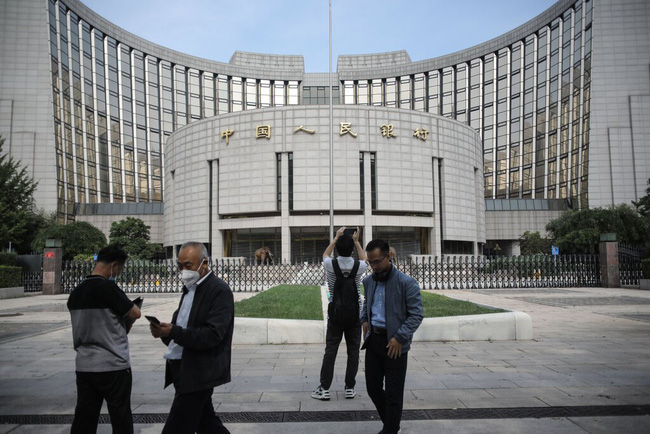Will China drive the global financial cycle?
US policy has been working to dampen the global financial cycle through rate hikes and the consequent rise in the dollar. Can any increased positivity towards China act as a counterweight going forward?

The People's Bank of China cut the required reserve ratio by 0.25 percentage points to support economic growth, as the economy continues to be dragged down by the rising number of Covid cases and real estate crisis.
>> What to expect from the FED’s monetary policy?
Much of Europe seems to be sliding into recession with little hope of easier monetary policy anytime soon. The US could take a little longer to fall below the zero line on growth, and, here too, hopes of a rapid monetary policy turnaround next year appear premature. Japan’s economy might grow, but it is hardly in a position to engender much economic and financial market hope, particularly as the next move from the BoJ looks set to be a tightening of policy. When you put all of this together, you have to wonder where any positive surprises might come from.Could it be China that provides the incentive for investors to keep putting money to work?
Just recently, researchers at the Fed released a paper that questions the established view that China is unable to move what’s called the "global financial cycle" in any notable way despite its huge economic size. The global financial cycle is known to be driven primarily by the Fed. US rate cuts and/or a weaker dollar can increase global growth, lift risk sentiment, encourage global credit, and lift asset prices.
This is because of two factors. The first is that the US is the world's largest economy and hence can help pull others up if easier policy lifts the domestic economy. The second is that the US dollar is easily the most heavily used international currency for borrowing, trade invoicing, reserve holding, and more. The problem at the moment, of course, is that US policy has been working to dampen the global financial cycle through rate hikes and the consequent rise in the dollar.
Can any increased positivity towards China act as a counterweight going forward? On the surface, there appear to be numerous reasons why not. For a start, the renminbi has a growing international role, but it is still tiny compared to the US, and that’s probably the reason why China cannot hope to drive, or even influence, the global financial cycle. This was the finding of most studies in the past.
The Fed study questions this by arguing that China’s sheer economic size makes it able to influence the global financial cycle, but crucially suggests that GDP growth is not the right way to measure this impact because the measurement of GDP itself is somewhat questionable in China. Instead, it argues that credit growth is a better proxy for demand in the economy and that policymakers can influence this in a way that the Fed and other western policymakers cannot. If this is correct, the question is whether policymakers will try to ramp up credit growth considerably.
>> Where next for the global economic recovery?
While the markets' focus is usually on rates or reserve requirements, credit growth is the real key. This is of importance when it comes to influencing the global financial cycle because we suspect that a mere end to the COVID policy probably won’t cut it as far as global investors are concerned. Yes, such action will likely lift economic optimism and Chinese asset prices, and there will be a positive spillover to global growth hopes and global asset prices, but we’d question whether it would be sufficient to counterbalance the negative impetus that’s coming from elsewhere. In addition, we also have to remember other trends that have developed since China started its COVID crackdown nearly three years ago. These include a good deal of foreign government skepticism towards Beijing, particularly in light of Russia’s war with Ukraine. And then there are the actions of the private sector, as many companies seem to shift their supply chains to other countries or even reshore activity where possible.
"All these things could still mean that a rebound in the Chinese economy fails to really galvanize global investors and so fails to get the global financial cycle moving in a more positive direction." However, with things looking pretty bleak elsewhere, it might be the only hope that investors have," said Mr. Steve Barrow, Head of Standard Bank G10 Strategy.








